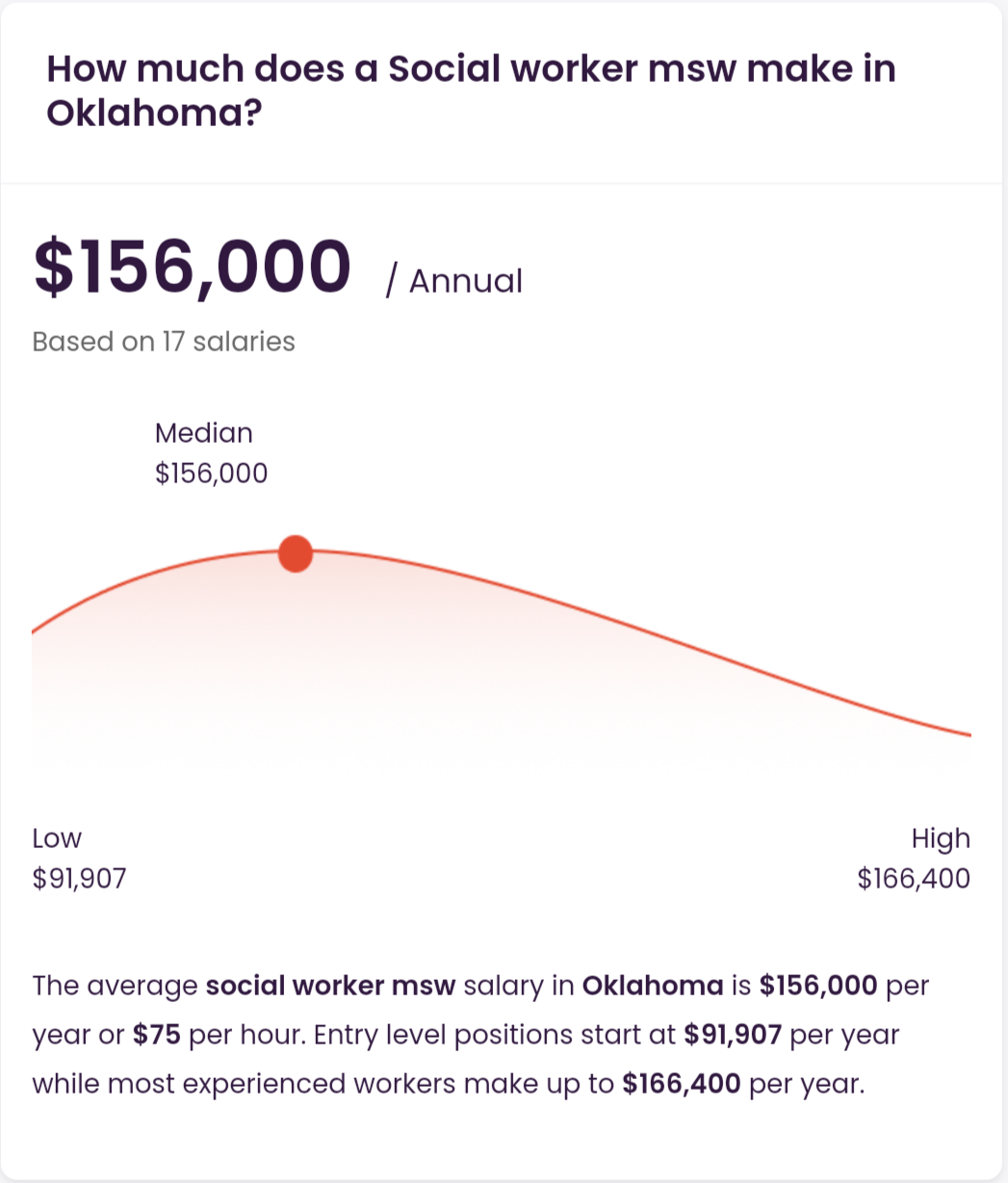Unlocking Opportunities with a Master's Degree in Social Work
Navigating the Work and Earning Landscape:
Social work is a noble profession dedicated to helping individuals, families, and communities overcome challenges and improve their well-being. Pursuing a Master's Degree in Social Work (MSW) not only enhances one's knowledge and skills but also opens up a plethora of opportunities in various fields. In this article, we delve into the significance of obtaining an MSW and explore the diverse work and earning landscape for social workers.
The Importance of an MSW:
A Master's Degree in Social Work serves as a gateway to advanced practice in the field. It equips individuals with specialized knowledge, practical skills, and a deeper understanding of social issues, human behavior, and intervention strategies. MSW programs typically offer concentrations in areas such as clinical social work, community organization, policy analysis, and more, allowing students to tailor their education to their interests and career goals.
Enhanced Expertise:
One of the primary advantages of earning an MSW is the opportunity to develop specialized expertise in a particular area of social work. Whether it's counseling individuals struggling with mental health issues, advocating for policy change at the macro level, or providing support to marginalized communities, an MSW provides the necessary training and credentials to excel in diverse roles.
Professional Licensure:
In many jurisdictions, obtaining an MSW is a prerequisite for licensure as a clinical social worker. Licensed Clinical Social Workers (LCSWs) are authorized to diagnose and treat mental, emotional, and behavioral disorders, offering therapeutic services to individuals, couples, families, and groups. This licensure opens up lucrative career opportunities in private practice, healthcare settings, and mental health agencies.
Career Advancement:
With an MSW, individuals can pursue leadership and administrative roles within social service organizations, governmental agencies, and non-profit institutions. Advanced positions such as program director, clinical supervisor, policy analyst, or agency administrator often require a graduate degree and relevant experience. The MSW provides the necessary foundation to excel in these leadership roles and drive positive change within the field.
Diverse Work Opportunities:
Social workers with an MSW degree are in demand across a wide range of sectors, including healthcare, education, criminal justice, mental health, child welfare, and community development. The versatility of the degree allows graduates to choose from an array of career paths based on their interests, skills, and values.
Clinical Practice:
Many MSW graduates choose to work in clinical settings, providing therapy, counseling, and support services to individuals, families, and groups. Clinical social workers may specialize in areas such as substance abuse treatment, trauma therapy, child and adolescent mental health, or geriatric care. Employment opportunities exist in hospitals, mental health clinics, rehabilitation centers, and private practices.
Social Services:
Social workers play a crucial role in connecting individuals and families with essential resources and support systems. In social service agencies, MSW professionals may work as case managers, advocates, or coordinators, assisting clients with housing, financial assistance, healthcare access, and other basic needs. These roles are instrumental in addressing poverty, homelessness, and social inequality within communities.
Policy and Advocacy:
For social workers passionate about systemic change and social justice, opportunities abound in policy analysis, advocacy, and community organizing. MSW graduates can work for government agencies, advocacy organizations, or research institutes, influencing public policy, drafting legislation, and mobilizing communities to address social issues such as healthcare reform, immigration rights, or environmental justice.
Professional Development and Continuing Education:
In addition to the initial training provided through MSW programs, social workers are encouraged to engage in ongoing professional development and continuing education to stay abreast of evolving best practices, emerging research, and changes in policy and legislation. Continuing education opportunities, such as workshops, conferences, and online courses, enable social workers to enhance their skills, expand their knowledge base, and maintain licensure requirements.
Specialized Certifications:
Many social workers pursue specialized certifications to demonstrate proficiency in specific practice areas or interventions. Certifications such as Certified Advanced Social Work Case Manager (C-ASWCM), Licensed Clinical Social Worker (LCSW), or Certified Social Work Case Manager (C-SWCM) can enhance job prospects, increase earning potential, and signal expertise to employers and clients. Additionally, specialized certifications may be required for certain positions, such as those in healthcare or addiction treatment.
Challenges and Rewards:
While a career in social work offers numerous rewards and opportunities for professional fulfillment, it also comes with its share of challenges. Social workers often encounter complex and multifaceted issues, including poverty, trauma, substance abuse, domestic violence, and systemic oppression. The work can be emotionally demanding, requiring resilience, self-care, and strong boundaries to prevent burnout and compassion fatigue.
Advocacy and Social Change:
Despite the challenges, social workers are at the forefront of advocating for social justice, equality, and human rights. Whether working with marginalized populations, challenging discriminatory policies, or amplifying the voices of those who are often silenced, social workers play a vital role in driving systemic change and creating a more just and equitable society.
Personal Fulfillment:
Despite the demanding nature of the profession, social work offers profound opportunities for personal growth and fulfillment. Making a positive difference in the lives of others, witnessing resilience and transformation, and contributing to positive social change are deeply rewarding aspects of the profession. For many social workers, the meaningful connections forged with clients, colleagues, and communities are the driving force behind their commitment to the field.
Earning Potential:
While social work is renowned for its altruistic mission, it's also essential to consider the earning potential associated with an MSW degree. Salaries for social workers vary depending on factors such as location, experience, specialization, and employer type.
According to data from Talent.com, social workers in Oklahoma can earn as much as $160,000 per year, placing the state among the higher earners for this profession.
More broadly according to ZipRecruiter, the average salary for MSW graduates in the United States varies widely. Nationwide, top earners in the social work field can make up to $115,500 annually, while the average salary for MSWs is around $78,890 per year.
These figures can be higher depending on specific roles, experience, and location. For example, specialized roles like Licensed Clinical Social Workers (LCSWs) or those working in high-demand areas can command higher salaries.
Factors Influencing Earnings:
- Experience: Social workers with years of experience and advanced credentials typically command higher salaries than entry-level professionals.
- Location: Urban areas and regions with a higher cost of living often offer higher salaries to offset expenses.
- Specialization: Clinical social workers, particularly those in private practice, tend to earn higher incomes compared to those in non-clinical roles.
- Employer Type: Social workers employed by government agencies, hospitals, and private companies may receive competitive salaries and benefits packages.
Conclusion:
Obtaining a Master's Degree in Social Work opens doors to a fulfilling and impactful career dedicated to serving others and promoting social justice. Whether pursuing clinical practice, social services, or policy advocacy, MSW graduates play a vital role in addressing the complex social challenges facing individuals and communities. While the work can be challenging and emotionally taxing, the intrinsic rewards of making a positive difference in people's lives are immeasurable. Aspiring social workers embarking on their MSW journey can look forward to a profession that not only enriches the lives of others but also offers opportunities for personal and professional growth. With dedication, compassion, and a commitment to lifelong learning, social workers can navigate the diverse work and earning landscape of the profession while making a lasting impact on the lives of those they serve.






